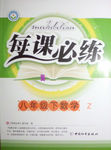��Ŀ����
����Ŀ�����ĸĴ�
�ٶ�Ӣ�������ʦҪ��ͬ��֮�佻�������ģ���������ͬ��д���������ġ����й���10�����Դ���ÿ���������������ÿ��������漰һ�����ʵ����ӡ�ɾ�����ġ�
���ӣ���ȱ�ʴ���һ��©�ַ��ţ��ģ�������������д���üӵĴʡ�
ɾ�����Ѷ���Ĵ���бǮ��\��������
�ģ��ڴ��Ĵ��»�һ���ߣ����ڸô�����д���ĺ�Ĵʡ�
ע�⣺
1. ÿ���������ľ�����һ�ʣ�
2. ֻ������10�������ߣ��ӵ�11���𣩲��Ʒ֡�
Last week, we had a class meeting, making a survey about the phenomenon of some students copying from others�� homeworks and cheating in exams. The survey shows that 98% of the students questioning think it is a matter of honesty. However, 25% of the students think they have too many homework, and their parents and teachers care too much for their scores. As result, some of them can��t help copy from others to avoid being punished. In my opinion, this is wrong to copy from others. We students should be honest but try to finish our homework all by ourselves. As for teachers, they had better to offer students different homework and tests depending on different levels. By doing such, every student can have a sense of accomplishment.
���𰸡�
��1��homeworks��homework
��2��questioning��questioned
��3��many��much
��4��for��about
��5��As��result֮���a
��6��copy��copying
��7��this��it
��8��but��and
��9��better�����toȥ��
��10��such��so
��������
���������������̸������������ѧ����Ϯ��ҵ�Ϳ�������������һ�ΰ����
��1��homeworks��homework homework�Dz��������ʣ�û�и�������homeworks�ij�homework��
��2��questioning��questioned students��question�DZ�����ϵ���ù�ȥ�ִ��������questioning�ij�questioned��
��3��many��much homework�Dz��������ʣ���much���Σ�������many���Ρ���many�ij�much��
��4��for��about ���⣺���ǵĸ�ĸ����ʦ̫�������ǵijɼ���care about���ġ���for�ij�about��
��5��As��result֮��� a as a resultΪ�̶����䣬��Ϊ����ˡ�����As�����a��
��6��copy��copying can��t help doing��ʾ���鲻�Խ���ij�¡�����copy�ij�copying��
��7��this��it ʹ��It is+���ݴ�+����ʽ�ľ��ͣ�it����ʽ�������ʽ�����������������this�ij�it��
��8��but��and ����ѧ��Ӧ�ó�ʵ����Ҫ�����Լ������ҵ��be honest��try to finish our homework all by ourselves�Dz��й�ϵ����and���ӡ���but�ij�and��
��9��better�����toȥ�� had better����Ӷ���ԭ�Ρ���better����ȥ��to��
��10��such��so ���⣺ͨ����������ÿ��ѧ�������гɾС�such��������������so���������ʣ�so����ָ���������¡�����such�ij�so��
��֪ʶ��չ��
1.so + ���ݴ�/���� + that + �Ӿ�,�磺This story is so interesting that I want to read it again.��������������Ȥ���������ٶ�һ��.��
2.so+���ݴ�/����+(a/an)+(����)�����������ʣ�+that+�Ӿ�,������е������ǵ�����������,��ǰ��Ҫ��
a��an,����Ǹ����������ʻ���,ǰ��Ͳ���,�磺 Those are so beautiful flowers that wants to pick them.����Щ�������Ư�������Ǹ�Ů����Ҫժ������.��
3.such+a/an+���ݴ�+������������+that+�Ӿ�,�磺It is such an interesting story that I want to read it again.������һ�������Ȥ�Ĺ������������ٶ�һ��.��
��ܰ��ʾ��so+��ʾ�����Ĵ�many/much/few/little(��)+���ʣ���ʱ������such.

 ÿ�α���ϵ�д�
ÿ�α���ϵ�д�